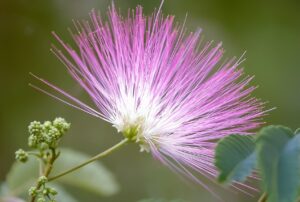Table of Contents
Tepezcohuite: A Traditional Remedy for Modern Skin Care
What Is Tepezcohuite?
Tepezcohuite, also known as Mimosa tenuiflora or tepescohuite, is a perennial tree that has been celebrated in traditional medicine for its remarkable healing properties. Native to Mexico and Brazil, this tree’s bark is rich in antioxidants, tannins, and lipids that provide moisturizing, anti-aging, and regenerative effects.
Historically, Tepezcohuite was used by the Mayans for wound healing, particularly for burns. Today, it’s gaining recognition as a potential powerhouse ingredient in natural skin care.

Tepezcohuite: A Traditional Remedy for Modern Skin Care
Potential Benefits of Tepezcohuite
1. Supports Wound and Ulcer Healing
Tepezcohuite’s antibacterial and cell-regenerative properties make it highly effective in healing wounds and ulcers. A controlled clinical trial demonstrated that hydrogel containing M. tenuiflora extract led to a 92% reduction in ulcer size over 13 weeks, significantly outperforming the control group.
2. Alleviates Burns
Extracts from Tepezcohuite bark promote cellular reproduction, accelerating the healing of burns. Research published in the Journal of Ethnopharmacology highlights its potential in burn care.
3. Promotes Healthy Aging
With potent antioxidant and anti-inflammatory properties, Tepezcohuite supports skin health by combating oxidative stress and reducing inflammation. It also serves as a natural moisturizer and may improve the appearance of scars and skin texture.
4. Helps With Pain Relief
A study in PLOS One found that Tepezcohuite extract exhibits antinociceptive properties, effectively blocking pain signals. This makes it a promising natural alternative for pain relief.
5. Has Antimicrobial Properties
Tepezcohuite’s antimicrobial effects help prevent infections and promote healing. It inhibits the growth of bacteria, yeasts, and dermatophytes, supporting its traditional use in treating wounds and ulcers.
Risks and Side Effects
Despite its promising benefits, Tepezcohuite’s safety profile is not well-documented. Most studies are laboratory-based, and human trials are limited.
To minimize risks, perform a patch test before using any Tepezcohuite-containing product. Avoid use during pregnancy or breastfeeding, as there’s insufficient evidence regarding its safety in these conditions.
Internal consumption of Tepezcohuite is discouraged due to its potential psychoactive effects.
How to Use Tepezcohuite
Products such as creams, serums, and oils with Tepezcohuite extracts are available from reputable brands. Follow the product label’s instructions, and consult with a dermatologist for personalized advice.
DIY enthusiasts can purchase Tepezcohuite bark powder but should ensure safe handling and formulation.
Unique Perspectives on Tepezcohuite
Natural Alternatives to Synthetic Skin Care
Tepezcohuite represents a shift toward natural remedies in skin care, offering a sustainable and chemical-free option for consumers. Its traditional uses align with modern eco-conscious trends.
Integrating Tepezcohuite Into Holistic Wellness
Beyond its skin benefits, Tepezcohuite can be part of a broader approach to health. Its pain-relieving and anti-inflammatory properties make it a candidate for integrative therapies alongside mindfulness and dietary adjustments.
Conclusion
Tepezcohuite is a fascinating natural remedy with a rich history and promising potential in skin care and wellness. While anecdotal evidence and preliminary research are encouraging, further studies are necessary to confirm its benefits and establish its safety.
If you’re considering incorporating Tepezcohuite into your routine, start small, monitor your skin’s response, and consult a healthcare professional. For more insights, visit Healthline or trusted dermatological resources.